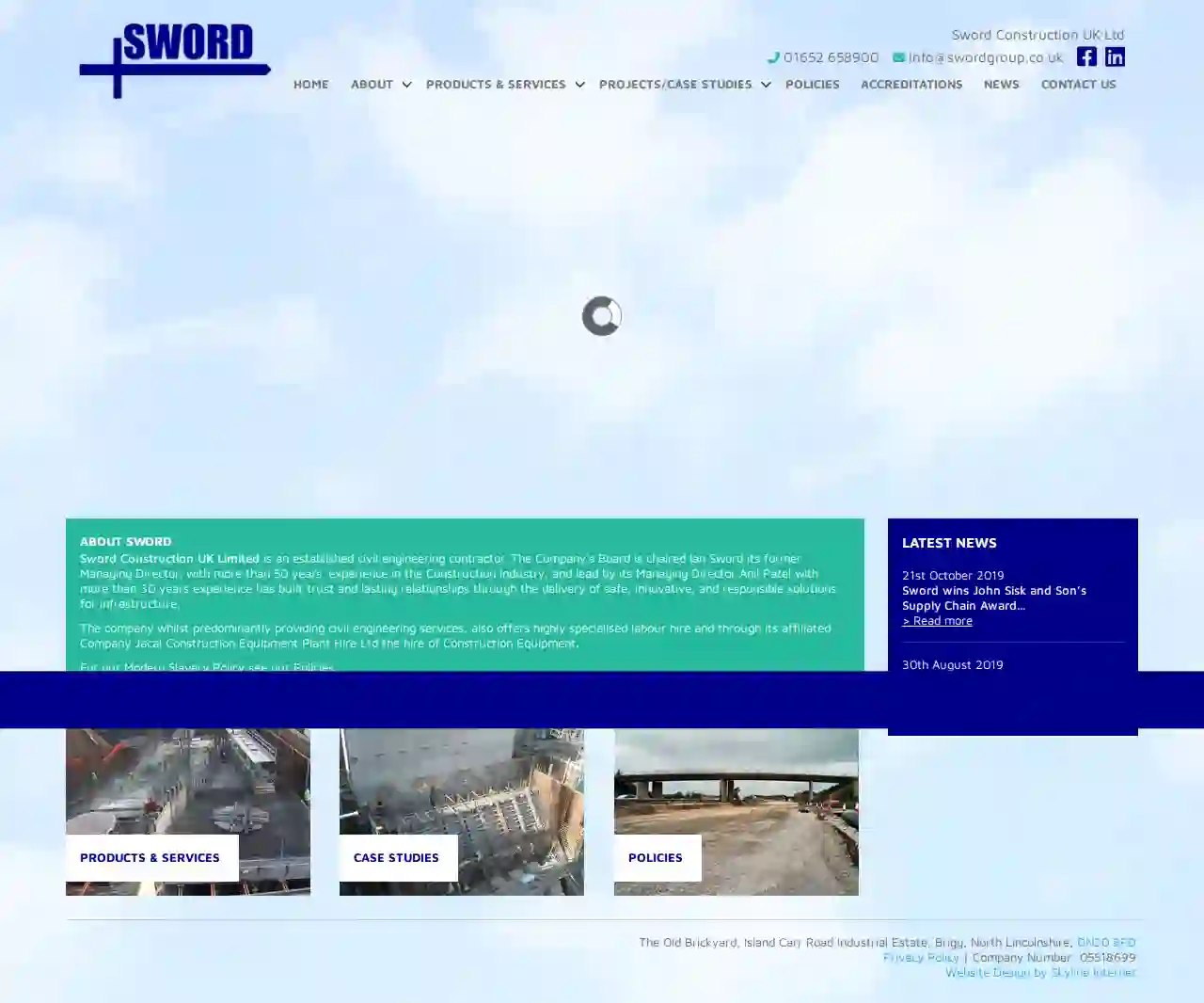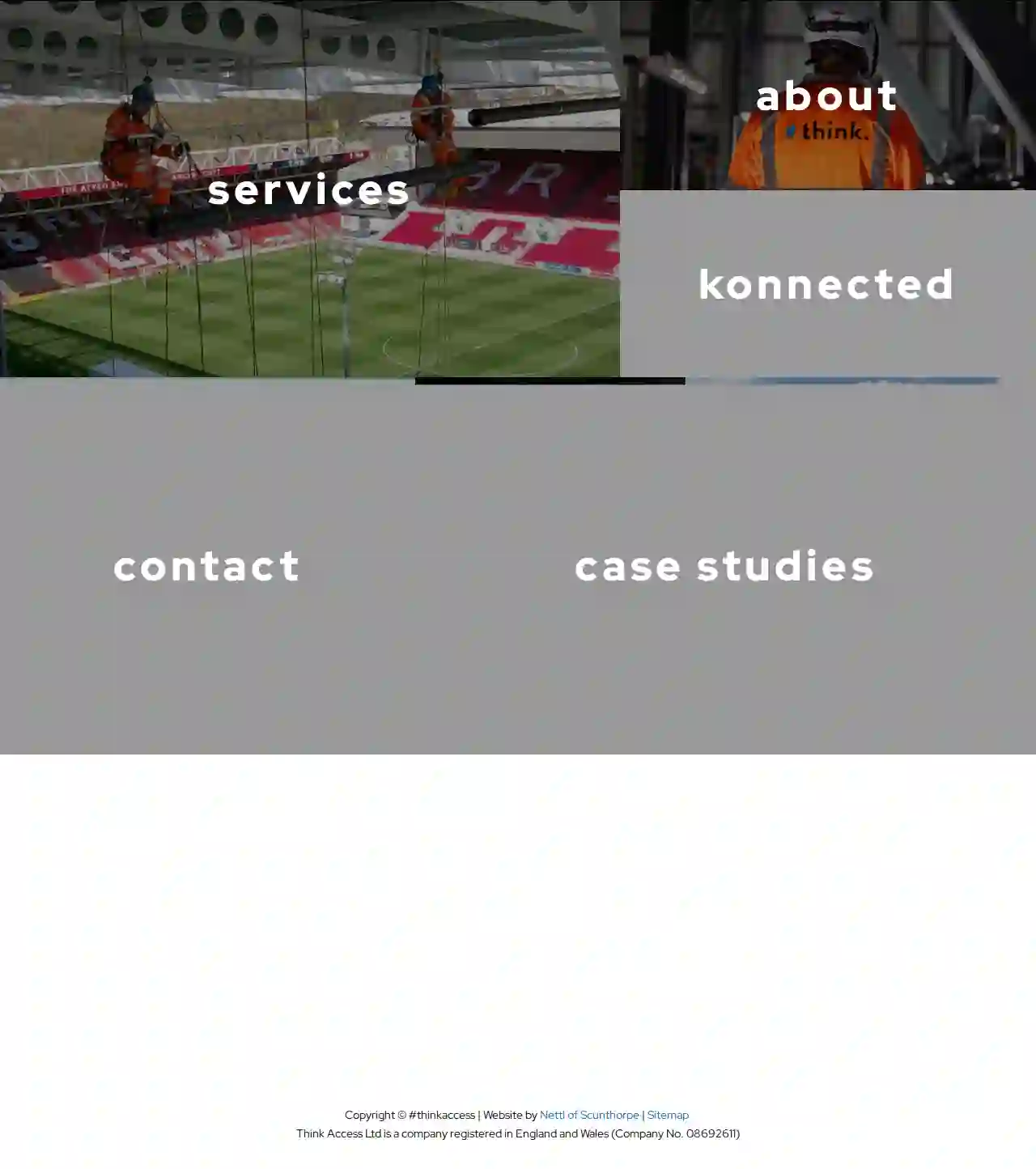Demolition Contractors Scunthorpe
Top 10 Demo Contractor in Scunthorpe
Receive up to 3 Demolition Contractor quotes for your project today! Compare profiles, reviews, accreditations, portfolio, etc... and choose the best deal.

Sword Construction UK Ltd
35 reviewsThe Old Brickyard, Island Carr Road Industrial Estate, Brigg, North Lincolnshire, DN20 8PD, GBAbout Sword Sword Construction UK Limited is an established civil engineering contractor. The Company's Board is chaired by Ian Sword, its former Managing Director, with more than 50 years’ experience in the Construction Industry, and led by its Managing Director Anil Patel with more than 30 years experience. Sword has built trust and lasting relationships through the delivery of safe, innovative, and responsible solutions for infrastructure. The company, whilst predominantly providing civil engineering services, also offers highly specialised labour hire and through its affiliated Company Jacal Construction Equipment Plant Hire Ltd the hire of Construction Equipment. For our Modern Slavery Policy see our Policies.
- Services
- Why Us?
- Gallery
Get Quote
Think Access Ltd
41 reviewsUnit 1, The Courtyard, Scunthorpe, GBThink Access We are a leading provider of access solutions for the construction, events and infrastructure industries.
- Services
- Why Us?
- Gallery
Get Quote
M Toyne Groundworks
44 reviewsScunthorpe, GBM Toyne Groundworks: Your Trusted Civil Engineering Partner M Toyne Groundworks is a reputable civil engineering company dedicated to providing exceptional services to both the public and private sectors. We boast a wealth of experience in a wide range of construction and civil engineering projects, ensuring we can meet your specific needs. Our team of skilled professionals is committed to delivering high-quality workmanship and exceeding client expectations. We take pride in our attention to detail, ensuring every project is completed to the highest standards. We understand the importance of working closely with our clients, providing clear communication and regular updates throughout the project lifecycle. Our goal is to build lasting relationships based on trust, transparency, and mutual respect. Whether you require drainage solutions, foundation construction, or any other civil engineering service, M Toyne Groundworks is your reliable partner. We are committed to delivering projects on time and within budget, while maintaining the highest safety standards. Contact us today for a free, no-obligation quote and let us help you bring your vision to life.
- Services
- Why Us?
- Gallery
Get Quote
Over 11,537+ Excavation Pros on our platform
Our excavation contractors operate in Scunthorpe and beyond!
ExcavationHQ has curated and vetted Top Excavation Pros near Scunthorpe. Find a top & trustworthy contractor today.
Frequently Asked Questions About Demolition Contractors
- Dust Suppression: Use water spraying, misting systems, or other dust suppression techniques to control airborne particles.
- Noise Barriers: Erect temporary noise barriers around the demolition site to reduce noise transmission to nearby properties.
- Work Schedule: Schedule noisy demolition activities during permitted hours to minimize disturbance to neighbors.
- Communication: Keep neighbors informed about the demolition schedule and any potential disruptions.
- Implosion: Using explosives to collapse a structure inwards rapidly. Suitable for large buildings in open areas.
- Wrecking Ball: Swinging a large steel ball to impact and break down the structure. Effective for bringing down walls and other solid elements.
- High-Reach Demolition: Utilizing specialized excavators with extended arms and demolition attachments for dismantling tall structures piece by piece.
- Selective Demolition: Removing specific parts of a building while preserving other sections. Often used in renovation projects.
- Deconstruction: Carefully dismantling a building to salvage reusable materials, reducing waste and environmental impact.
- Feasibility Studies: Assessing the viability and challenges of a demolition project.
- Demolition Planning: Developing demolition plans, including method selection, sequencing, and safety procedures.
- Permitting Assistance: Navigating the demolition permitting process and ensuring compliance with regulations.
- Hazardous Material Surveys: Identifying and managing hazardous materials, such as asbestos and lead paint.
- Cost Estimating: Providing accurate cost estimates for demolition services.
- Project Management: Overseeing the demolition process and ensuring it proceeds as planned.
- 'Can I see proof of your licensing and insurance?' Verify their credentials and coverage.
- 'What experience do you have with projects like mine?' Ensure they have relevant expertise.
- 'Can you provide references from past clients?' Check their reputation and customer satisfaction.
- 'What are your safety protocols?' Prioritize contractors who emphasize safety.
- 'How will you handle hazardous materials?' Ensure they have proper procedures for asbestos or lead abatement.
- 'What is your timeline for completing the project?' Understand the project duration.
- 'How will you manage noise, dust, and debris?' Discuss mitigation measures for minimizing disruption.
- 'What are your payment terms?' Clarify payment schedules and any required deposits.
How can I minimize the dust and noise from demolition?
What are the different types of demolition?
What is the role of a demolition consultant?
What questions should I ask a demolition contractor before hiring them?
How can I minimize the dust and noise from demolition?
- Dust Suppression: Use water spraying, misting systems, or other dust suppression techniques to control airborne particles.
- Noise Barriers: Erect temporary noise barriers around the demolition site to reduce noise transmission to nearby properties.
- Work Schedule: Schedule noisy demolition activities during permitted hours to minimize disturbance to neighbors.
- Communication: Keep neighbors informed about the demolition schedule and any potential disruptions.
What are the different types of demolition?
- Implosion: Using explosives to collapse a structure inwards rapidly. Suitable for large buildings in open areas.
- Wrecking Ball: Swinging a large steel ball to impact and break down the structure. Effective for bringing down walls and other solid elements.
- High-Reach Demolition: Utilizing specialized excavators with extended arms and demolition attachments for dismantling tall structures piece by piece.
- Selective Demolition: Removing specific parts of a building while preserving other sections. Often used in renovation projects.
- Deconstruction: Carefully dismantling a building to salvage reusable materials, reducing waste and environmental impact.
What is the role of a demolition consultant?
- Feasibility Studies: Assessing the viability and challenges of a demolition project.
- Demolition Planning: Developing demolition plans, including method selection, sequencing, and safety procedures.
- Permitting Assistance: Navigating the demolition permitting process and ensuring compliance with regulations.
- Hazardous Material Surveys: Identifying and managing hazardous materials, such as asbestos and lead paint.
- Cost Estimating: Providing accurate cost estimates for demolition services.
- Project Management: Overseeing the demolition process and ensuring it proceeds as planned.
What questions should I ask a demolition contractor before hiring them?
- 'Can I see proof of your licensing and insurance?' Verify their credentials and coverage.
- 'What experience do you have with projects like mine?' Ensure they have relevant expertise.
- 'Can you provide references from past clients?' Check their reputation and customer satisfaction.
- 'What are your safety protocols?' Prioritize contractors who emphasize safety.
- 'How will you handle hazardous materials?' Ensure they have proper procedures for asbestos or lead abatement.
- 'What is your timeline for completing the project?' Understand the project duration.
- 'How will you manage noise, dust, and debris?' Discuss mitigation measures for minimizing disruption.
- 'What are your payment terms?' Clarify payment schedules and any required deposits.